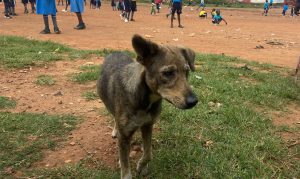Why dogs roam in Uganda: What every responsible pet owner should know.
Introduction
This summary is based on a peer-reviewed research article authored by Dr. Dickson Tayebwa, with our veterinarian, Dr. Isa Lutebemberwa, as a co-author. The article aims to shed light on key findings relevant to pet owners and highlights practical lessons they can adopt to promote responsible dog ownership.
Dog care practices among 1,006 owners in urban and rural areas in Uganda to identify the root causes of roaming we analysed. The dog owners were mostly male, aged 20–39 years, and low-income earners. Each household in urban areas had an average of 2.36 dogs (SD 3.35), and 2.35 dogs (SD 2.18) in rural areas. It was determined that 16.1% of urban dogs and 29.4% of rural dogs roamed during the day, with numbers rising to 26.0% and 65.2% at night (p < 0.001), due to dogs being released at night for security purposes.
Key drivers of roaming included inadequate confinement, particularly the lack of a secure enclosure around homes, underfeeding and abandonment. These issues were linked to poverty, low education and poor attitudes. These findings provide a foundation for developing tailored strategies to control free-roaming dogs (FRD) in Uganda.
Short-term solutions include implementing fines for owners who allow their dogs to roam, subsidised dog sterilization, and public education programs. Long-term strategies should involve policies on dog ownership, registration, breeding, and research to develop evidence-based control measures for FRD.
What does this mean to a responsible pet owner?
At Vetlit Mobile Veterinary Services, we believe that every dog owner has a vital role to play in improving the welfare of their pets and the community. Here’s how you can be part of the solution: Roaming is common, especially in rural areas where up to 65.2% of dogs roam at night. This is often due to cultural norms and economic hardship. While some issues are systemic, every responsible pet owner must understand this context and act accordingly.
-
Confinement is Key
A lack of secure fencing or kennels is a primary reason dogs roam. If you own a dog for security or companionship, make sure it is safely confined within your home or yard. Invest in building a dog-safe enclosure to prevent roaming and improve safety.
Tip: A well-fenced yard or kennel is not just protection for your dog, it also protects your community.
-
Feeding and Basic Pet Care Are Foundational
Hungry dogs will roam. Make sure your dog is fed with nutritious and adequate meals. Regular feeding not only ensures good health but also discourages roaming behaviour. Combine this with routine visits to a veterinary clinic for checkups and vaccinations.
Visit our pet clinic at Vetlit for nutritional guidance and professional care for both dogs and cats.
-
Attitude and Commitment Matter
A responsible pet owner treats their dog with empathy and sees it as a lifelong companion, not just a tool for guarding. Neglect and abandonment often result from poor attitudes. Show commitment by providing consistent care and emotional support.
-
Be Part of the Solution
Every pet owner can help reduce the number of free-roaming dogs in Uganda:
- Do not abandon your dog, regardless of circumstances.
- Spay or neuter your pet to prevent unwanted puppies.
- Appropiately vaccinate your pet with rabies and cocktail vaccine for prevention and control of diseases
- Support or volunteer for community education and welfare programs. Vetconekt organises these , consider supporting it.
Final Thought
While poverty, infrastructure challenges, and lack of awareness may be outside your control, being a responsible dog owner is not. Take the lead in your neighbourhood. Keep your dog safe, well-fed, and properly contained. Encourage others to do the same.
REFERENCES
Sociodemographic factors and dog ownership practices that perpetuate the roaming of owned dogs in selected urban and rural settings in Uganda (https://www.tandfonline.com/doi/full/10.1080/10888705.2024.2411553)

